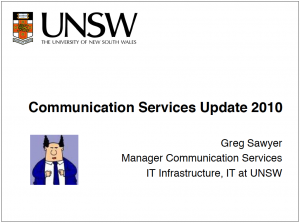Collaborative Research Residency: Call for Applications
Collaborative Research Residency:
Call for Applications
www.crresidency.net <http://www.crresidency.net>
Contact
application [at] crresidency [dot] net <mailto:application@crresidency.net>
Info
Deadline: 1 February 2011
*BAC, Baltic Art Center*in Visby, Sweden;*The Factory of Art and Design (FFKD)*in Copenhagen, Denmark and*Hordaland Art Centre*in Bergen, Norway jointly invite professionals within the field of visual art to apply to our new*Collaborative Research Residency*.
The*Collaborative Research Residency*offers one month residencies spring 2011 for research groups of three collaborators where at least one has a contemporary visual arts background (artist/curator/art critic). The programme encourages new relationships and should be seen as a chance to try out different types of collaborations, which may have an inter-disciplinary character. We welcome applications from research groups of three people, where a minimum of two people are based in or coming from the Nordic and Baltic countries.
This residency programme is a pilot project, and differs from our other residency programmes in two ways: it focuses on collaborative rather than individual practice, and it emphasises the research phase.
The application should outline the initial research idea, how you imagine the collaborative research process, as well as a clear motivation for why you wish to collaborate and how you see that your respective practices can enrich each other.
In 2011 we offer residencies to three groups of three people each to stay for one month in one of the three host institutions. A stipend of ?1400 per month for each person, travel costs up to ? 1000 for the group, accommodation and a studio or office facility will be provided. ?500 will be allocated to each collaborating unit for expenses associated to their research.
*APPLICATION PROCEDURE
*
The application should include: a description of the initial idea, an outline of the imagined process and a clear motivation for the collaboration. A minimum of two applicants must be from any of the Nordic or Baltic countries, or be professionally based in any of these countries. Please see_www.crresidency.net_ <http://www.crresidency.net/>for detailed information.
*Application deadline:*1 February 2011 for one month (30 consecutive days) residency
BAC: March-June 2011/ FFKD: April-June 2011 / HKS: either April or May 2011.
*
THE HOSTS**
Baltic Art Center*is a production office and work place for artists, curators and contemporary art writers located at the Swedish island Gotland. BAC runs a variety of different production- and residency programs. It is a flexible organization placing the artistic process at the centre of its activities it therefore has no permanent studios or exhibition rooms. BAC is working actively with questions concerning the relationship between artistic process, institution and society with the aim to continuously assess and re-think our working methods.
_www.balticartcenter.com_ <http://www.balticartcenter.com/>
*The Factory of Art and Design (FFKD)*is an artist-run institution in Copenhagen, Denmark. FFKD houses 55 studios for professional visual artists and designers and a 1000m2 production hall, which is used for exhibitions and events. We run a variety of different international residency programs and collaborate equally on a local, national and international level in issues dealing with the conditions of artistic production.
_www.ffkd.dk_ <http://www.ffkd.dk/>
*Hordaland Art Centre*based in Bergen, Norway was established 1976 as the first artist run art centre in Norway. Its activities are based around the exhibition programme with equal emphasis on seminars, presentations and dialogue. Since 1987 Hordaland Art Centre has had a residency programme, from 2008 open to international artist, curators, writers and other art professionals. Hordaland Art Centre is situated in one of the oldest remaining school buildings in Bergen where we focus on local commitment in an international every day.
_www.kunstsenter.no_ <http://www.kunstsenter.no/>

